Screening tests are health checks that are done in persons who seem healthy, to try to find unnoticed problems before you have any signs or symptoms of disease. These tests are done as a preventive measure, to detect a potential health problem early before severe disease and complications occur. Health checks also help to reduce the risk of developing chronic conditions by identifying risk factors that make you more likely to develop major NCDs, the main ones being high blood pressure, cardiovascular disease (such as heart attack or stroke), diabetes, cancers and depression.
Early detection means getting the right treatment at the right time, which gives you better control over your health.
Persons at high risk of developing NCDs have certain factors or characteristics that make them more likely to develop NCDs than the average person. Factors that increase the risk of persons developing major NCDs are listed below:
| Major NCD | Persons with HIGH RISK of these NCDs are, or may have… |
|---|---|
| Hypertension (HTN) & Cardiovascular Disease (CVD) | Overweight/obesity, family history of HTN or CVD, older age, diabetes, African descent, sleep disorders, kidney disease; pregnant women with other medical conditions during pregnancy. |
| Diabetes | Overweight/obesity, family history of diabetes, high blood pressure, high cholesterol, signs of specific hormonal abnormalities, history of diabetes in pregnancy, physical inactivity. |
| Breast Cancer | Age over 40 years, family history of breast cancer, persons known to have BRCA 1 and 2 or other genetic mutations, history of chest exposed to radiation. |
| Cervical Cancer | All women ages 21 to 65 years of age are at risk of cervical cancer. Persons with weak immune systems, including those with HIV infection, have a higher risk. |
| Colon Cancer | Age over 50 years especially males, personal or family history of intestinal polyps, family history of colon cancer, lifestyle factors (low fibre diet, obesity, diabetes, smoking), African descent. |
| Prostate Cancer | Men over 50 years, family history of prostate cancer, persons known to have BRCA 1 and 2 genetic mutations. |
| Depression | Chronic medical illness, personal or family history of mental illness, single parent family, poor social and economic circumstances, history of negative life event (job loss, death of relative/friend, domestic violence, etc), substance abuse, sexual minorities. |
What’s Your Risk of Getting a Non-Communicable Disease (NCD)?
Click here to see, based on your risk, how often you should screen for these NCDs.
If you do not have any of the characteristics listed above, then you are likely to have AVERAGE RISK for developing NCDs.
When to Screen
Your recommended schedule for routine screening depends on your age and your risk level for developing these major NCDs. Visit your health care provider to find out more about your risk for developing NCDs, and to make an appointment for screening.

